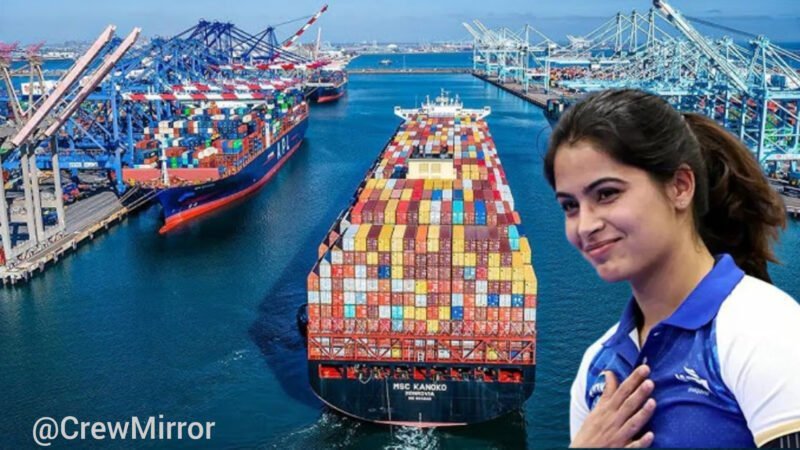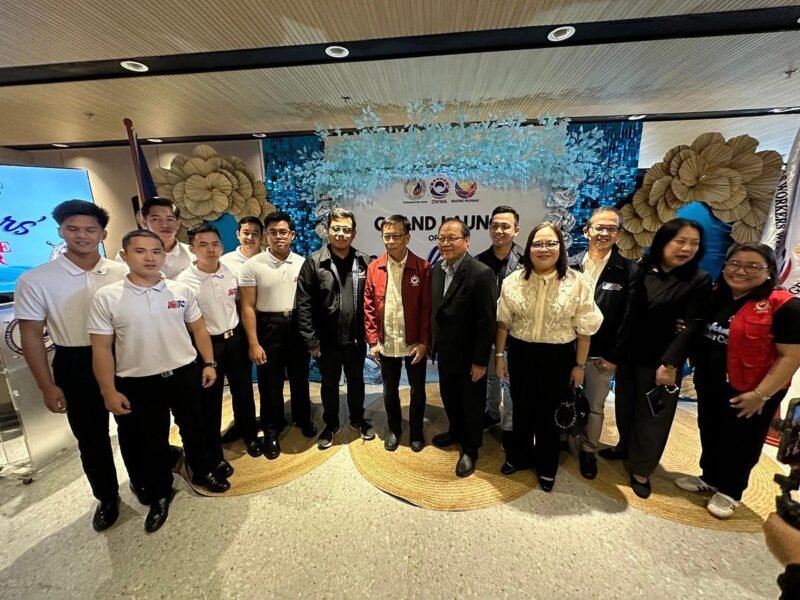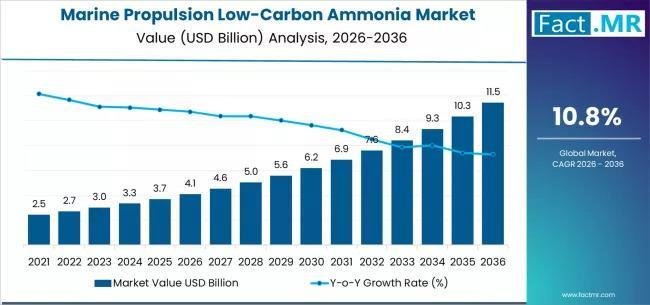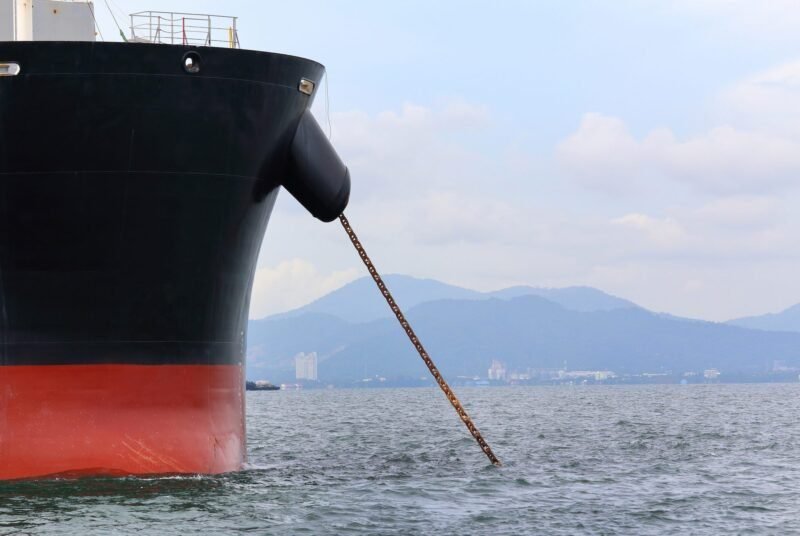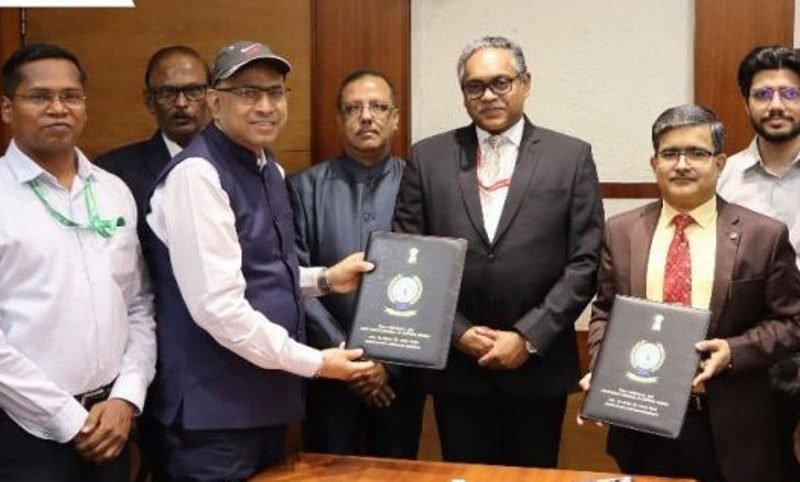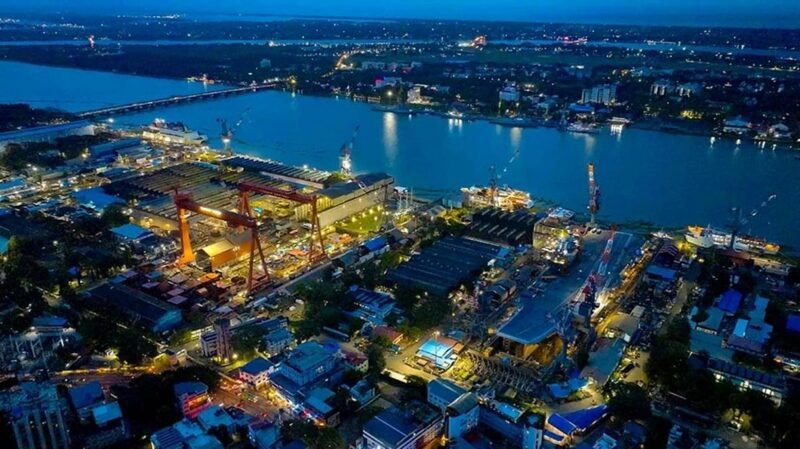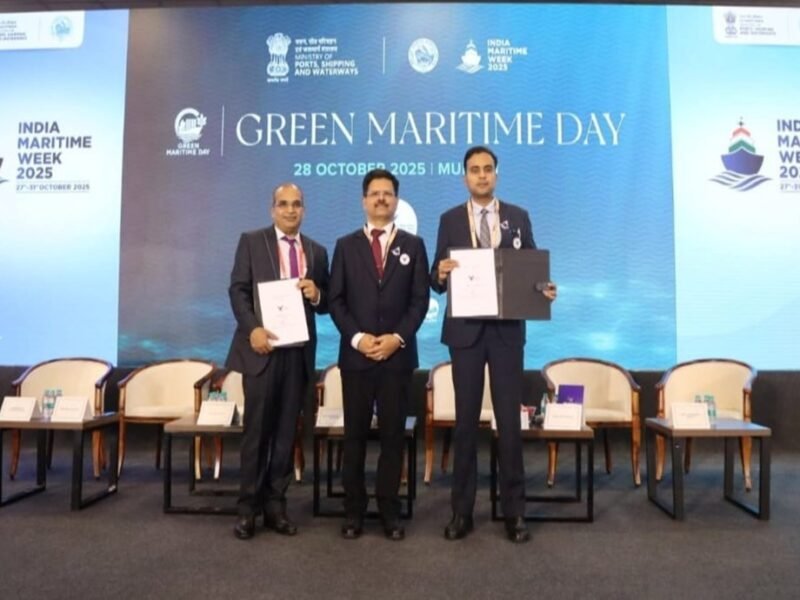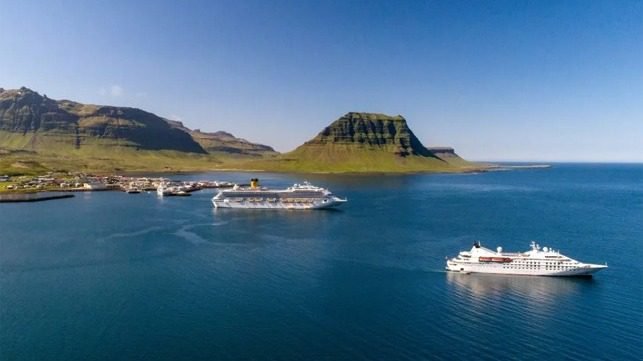India Maritime Advancements
Manu Bhaker Named Brand Ambassador for Ministry of Ports
The Ministry of Ports, Shipping, and Waterways appointed Olympic medalist Manu Bhaker as their brand ambassador, leveraging her shooting prowess and maritime background. Minister Sonowal hailed Bhaker’s role in promoting India’s marine sector, aiming for self-reliance by 2047. The event honored women like Lt. Commander Joshi for their contributions to nation-building. Read More
India and Denmark Strengthen Maritime Relations for Sustainable Development
India and Denmark are collaborating to enhance maritime relations, focusing on sustainable practices under the India-Denmark Green Strategic Partnership. This partnership includes areas like quality shipping, maritime training, green technology, and decarbonization efforts. Denmark’s expertise in sustainable maritime technologies is supporting India’s initiatives like the Sagarmala project and Maritime India Vision 2030. Read More
PM Modi Inaugurates Tuticorin International Container Terminal in Tamil Nadu
Prime Minister Narendra Modi hailed the Tuticorin International Container Terminal in Tamil Nadu as a beacon of India’s marine infrastructure, boosting capacity at V.O. Chidambaranar Port. With state-of-the-art amenities and a focus on gender diversity, the terminal is set to reduce logistics costs and contribute to India’s maritime development goals. Read More
India Launches New Maritime Dispute Resolution Centre for Disputes
During the 20th Maritime State Development Council meeting in Goa, significant advancements for Indian shipping were announced. The launch of the Indian International Maritime Dispute Resolution Centre and the Indian Maritime Centre aims to enhance the country’s maritime industry. Plans for a Mega Shipbuilding Park and progress on the Sagarmala program were also highlighted. Read More
Environmental Initiatives
Rolls-Royce Deploys Mini Nuclear Reactors to Revolutionize Clean Energy
Rolls-Royce is revolutionizing the energy sector with its new micro nuclear reactors in the Czech Republic. These small modular reactors offer a compact, affordable, and efficient alternative to traditional nuclear power plants. By streamlining the process of harnessing nuclear power, Rolls-Royce aims to reshape the global energy landscape and advance emission-free energy for shipping. Read More
New Advanced Shipyard Opens in Singapore for Offshore and Renewable Projects
ST Engineering has unveiled its new shipyard at 55 Gul Road in Singapore, replacing the expiring Tuas Yard. The Gul Yard, double the size of Tuas Yard, is equipped for larger projects. With AI-driven automation, digital twin technology, and 5G connectivity, the facility aims for efficiency and safety. Sustainability initiatives include electric vehicles and a clean energy transition plan. Read More
European Commission Unveils Maritime Industry Strategy for Sustainability and Competitiveness
The European Commission has unveiled an industrial maritime strategy to enhance Europe’s maritime manufacturing sector’s competitiveness, sustainability, and resilience. This strategy supports the green and digital transition, infrastructure development, and investment in decarbonization solutions. Collaboration across the waterborne transport sector is crucial for maintaining global leadership and creating quality jobs. Read More
HIF Global Partners with MOL for E-Fuels Expansion
HIF Global, a leading e-fuels company, has secured a substantial investment from Mitsui OSK Lines (MOL) to expand its projects in the US, Australia, Chile, and Uruguay. This partnership marks the third Japanese investment in 2024, establishing a strong value chain for producing, transporting, and refining e-fuels for a more sustainable future. Read More
Wärtsilä and Chevron Team Up to Reduce Methane Emissions in LNG Carriers
Wärtsilä and Chevron Shipping are collaborating to convert six LNG Carriers to spark gas operation, reducing methane slip and lowering greenhouse gas emissions. This innovative project, the first of its kind in the marine industry, aims to optimize combustion and decrease methane emissions intensity for a more sustainable future in maritime transportation. Read More
LNG Emerges as Crucial Low-Carbon Fuel for Shipping Amidst Transition Challenges
At a recent oil industry conference, shipping companies emphasized LNG as a growing choice for low-carbon marine fuel to reduce emissions. Despite its potential, challenges in transitioning to greener fuels like bio-LNG and green methanol exist due to competition. The shift to LNG is crucial for decarbonizing the shipping sector, but affordability and availability of alternatives pose obstacles. Collaboration and innovation are key for a sustainable transition. Read More
AI and Connectivity Revolutionizing Maritime Operations at Sea
The maritime sector is on the brink of a digital revolution with advancements in AI and connectivity solutions like Starlink. AI-driven analytics enable precise decision-making for fleet managers, predicting maintenance needs and optimizing fuel consumption. High-speed connectivity at sea enhances safety, efficiency, and crew well-being, aligning with sustainability goals and setting new industry standards. Read More
Successful Ammonia Transfers at Dampier Port Pave the Way for Marine Fuel Bunkering
A consortium led by the Global Centre for Maritime Decarbonisation (GCMD) successfully conducted ship-to-ship ammonia transfers at the Port of Dampier in Western Australia. The pilot operation involved two transfers between the tankers Green Pioneer and Navigator Global, highlighting the feasibility of using ammonia as a marine fuel and reducing greenhouse gas emissions in the shipping industry. Read More
Ammonia System Launched to Advance Marine Decarbonisation Goals
Auramarine, a fuel supply systems pioneer, has launched an Ammonia System to support decarbonisation goals in the marine industry. With expertise in green strategies, the system ensures safety and compliance with regulations. CEO John Bergman highlights the importance of ammonia in achieving net zero shipping and anticipates deliveries in 2026. Read More
ABS and HD KSOE Partner to Develop Zero-Carbon Ship Technologies
ABS and HD Korea Shipbuilding & Offshore Engineering (HD KSOE) have joined forces to develop and certify innovative systems for next-generation, zero-carbon ships. Their focus includes advanced LNG cargo handling, ammonia fuel supply, and integrated re-liquefaction systems. This collaboration aims to lead the industry towards sustainable shipping and reduce carbon emissions through cutting-edge technology. Read More
Cruise Industry Developments
Norwegian Cruise Line Unveils Norwegian Luna, Set for Spring 2026 Voyages
Norwegian Cruise Line (NCL) has unveiled details about its upcoming ship, Norwegian Luna, joining the fleet in spring 2026. The ship, part of the Prima Plus class, will be the fifth largest in NCL’s fleet, accommodating 3,550 guests. With exciting features like the Aqua Slidecoaster and Glow Court, the ship promises unique experiences for guests sailing to Caribbean destinations. Read More
Disney Treasure Completes Conveyance to Netherlands Ahead of December Launch
The Disney Treasure, Disney Cruise Line’s latest ship, completed its journey from a shipyard in Germany to its berth in the Netherlands. The 16-hour conveyance along the Ems River was guided by tugs due to the ship’s massive size. After sea trials, the ship will sail to Port Canaveral, Florida, offering a magical cruise experience for guests. Read More
Seafarer Welfare
ITF Launches the Non-Seafarers’ Work Clause for Maritime Industry
The ITF and JNG have implemented the Non-Seafarers’ Work Clause to improve seafarer safety by assigning tasks like lashing and unlashing cargo to trained dockworkers. This reduces physical strain, fatigue, and the risk of accidents. By following this clause, companies can create a safer maritime industry and promote a better working environment for seafarers. Read More
LR Report Highlights Alarm Fatigue on Ships and Calls for Enhancing Crew Welfare
Lloyd’s Register (LR) has released a report urging the rationalization of alarms on ships to enhance crew welfare and reduce safety risks from alarm fatigue. LR and partners have formed an industry task force to evaluate alarm system approaches. The Danish Maritime Fund is funding this initiative to manage the increasing number of alarms due to digitalization in maritime operations. Read More
Kenya Strengthens Seafarer Regulations and Welfare with New Initiatives
Kenya has 11,000 seafarers, as recent statistics indicate, prompting government efforts to streamline the sector. President’s directives include expediting Seafarers Identification Document production. Labour Cabinet Secretary Alfred Mutua has appointed a Seafarers Wages Council. Recent evacuations of abandoned seafarers highlight ongoing welfare concerns, with calls for engagement with registered agencies. Read More
Miscellaneous
Ship Recycling Falls 42% in 2024 Amid High Demand and Market Conditions
The number of recycled ships has dropped by 42% year-on-year, reaching the second lowest level in 16 years due to high freight rates and strong demand. Fleet renewal has been limited, with only 45 ships recycled so far this year. Despite challenges, ship recycling is expected to rebound as market conditions normalize. Read More
ICS Releases Updated Guide on Reducing Greenhouse Gas Emissions for Maritime Compliance
The International Chamber of Shipping (ICS) recently released the second edition of Reducing Greenhouse Gas Emissions: A Guide to International Regulatory Compliance. This comprehensive guide addresses maritime emissions issues, including CII regulations for the tanker sector. It features a new chapter on the EU ETS and explores the link between GHG emissions and underwater noise reduction measures. Read More
Lloyd’s Open Form Default Clause Launches to Enhance Emergency Tug Service Contracts
The Lloyd’s Open Form Default Clause has been launched in collaboration with key stakeholders in the shipping industry to provide clarity on contracting emergency and non-standard tug services. This aims to streamline procedures, enhance communication between shipowners and underwriters, and restore confidence in LOF as a vital contract for maritime safety. Read More
MCA Releases Draft Criteria for Electric Vessel Training Courses for Seafarers
The Maritime and Coastguard Agency (MCA) has issued draft criteria for new courses focusing on training for seafarers on electric-propelled vessels. The guidelines outline minimum learning requirements for safety and technical skills, aiming to help seafarers keep up with technological advancements in electric propulsion. Feedback on the criteria is being collected through a consultation process until 20 October. Read More
Conclusion:
In conclusion, the maritime industry is making significant strides toward sustainability and innovation, with collaborations and advancements in technology leading the way. Initiatives like Rolls-Royce’s micro nuclear reactors and partnerships for e-fuels highlight a commitment to reducing emissions and enhancing efficiency. By embracing these changes, the industry is poised to create a cleaner future while maintaining global competitiveness.
Share it now


